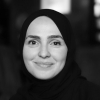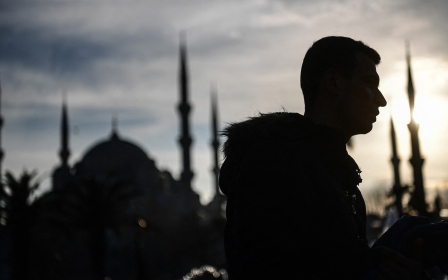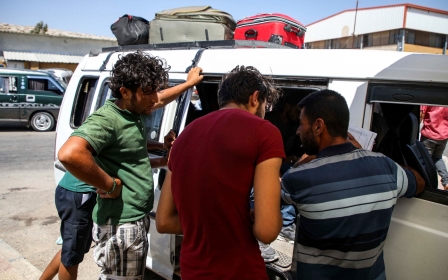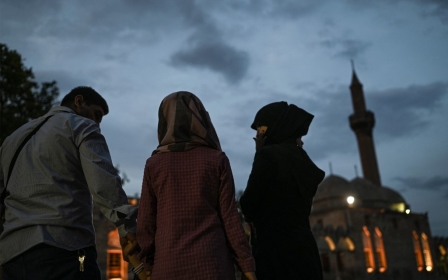How increasing racism has changed the Arab perception of Turkey
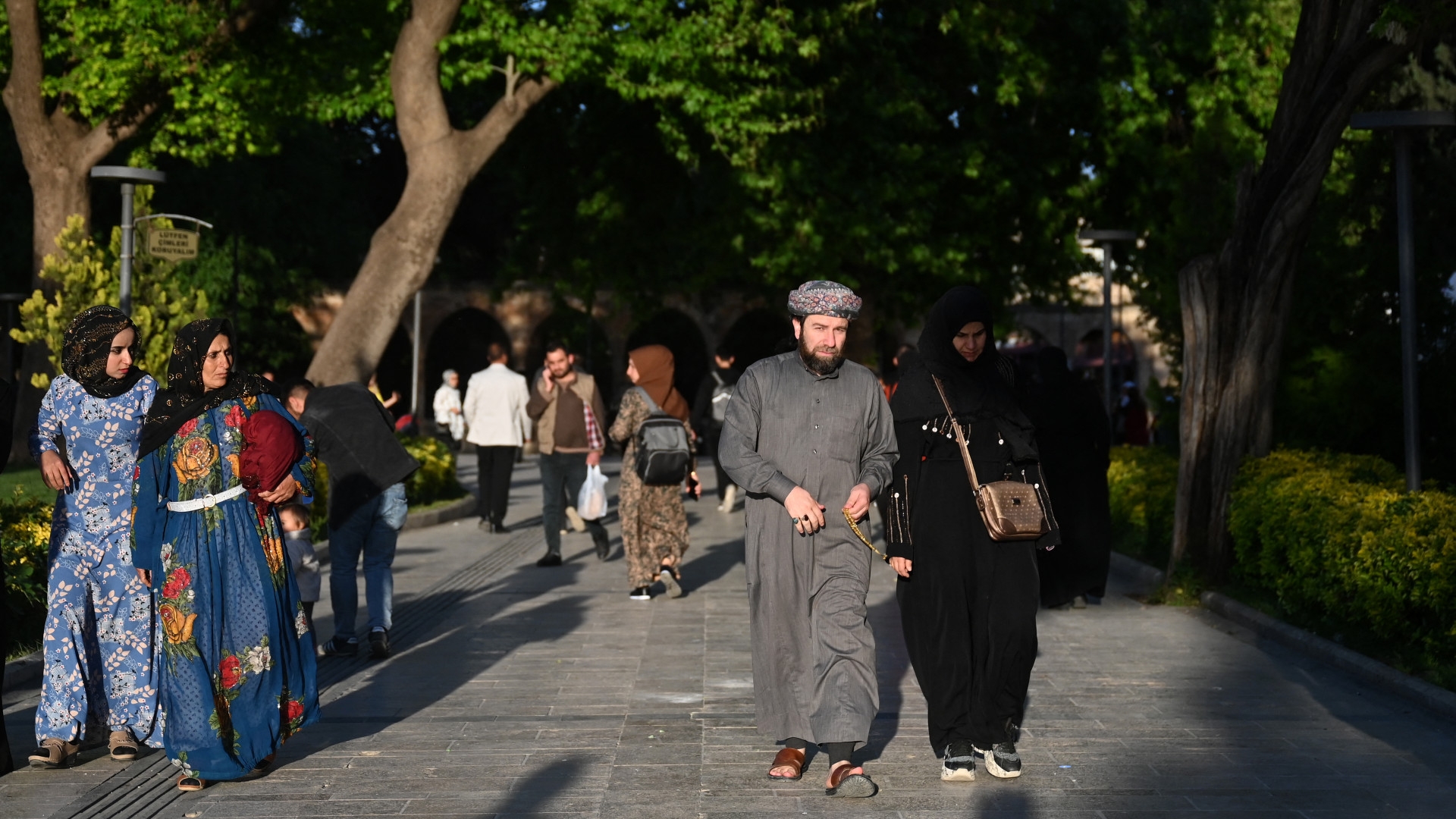
Last week, a Turkish national's brutal attack on a Kuwaiti tourist in the popular vacation city of Trabzon made international headlines and in the process highlighted the long-simmering anti-Arab and anti-refugee sentiment in the country, leading many to question how the rise of xenophobia in Turkey will affect this increasingly vulnerable population.
According to the latest available data provided by the Turkish Presidency of Migration Management (PMM), as of the end of 2022, of the 5.2 million foreign nationals residing in Turkey, 3.5 million of them are Syrians with temporary protection. In addition, close to two million Arabs legally reside in Turkey, immersed in local society, working, studying, and raising their families.
Yet the general public in Turkey has largely not supported the integration of these communities and can hardly differentiate between Arabs from the Gulf, Syria, or North Africa.
In multiple election cycles, politicians have run campaigns built on the demonisation and scapegoating of Arabs or inciting hostility towards Arab refugees and tourists, who are both equally targeted by racist and xenophobic narratives.
As the number of racist incidents against Arabs continues to rise, many are now expressing concern about what has become a noticeable shift in Turkish attitudes towards them.
New MEE newsletter: Jerusalem Dispatch
Sign up to get the latest insights and analysis on Israel-Palestine, alongside Turkey Unpacked and other MEE newsletters
From 'second home' to a staggering racism
The emotional impact of xenophobia on Arab residents in Turkey is written on their faces, with many wincing at the mere mention of present conditions and increased risks of living there.
The new outbreak of xenophobic violence not only affects foreigners and refugees - it also harms Turkish citizens
As a Moroccan resident in Turkey for more than ten years, Firdaous Amri describes her initial feelings of excitement about living in Istanbul, which she considered her second home, and how drastically the situation has changed.
"Previously, I faced no trouble speaking Arabic on the street or while using public transportation, but people's response today to me being an Arab is very different from when I first moved here," she says.
While some Arab students choose to remain in Turkey to pursue higher education, others settle in the country after securing a job or marrying a Turkish national. However, as Amri points out, for many Arab residents, the dreams that brought them to Turkey have been shattered.
Khadija Ghanem, the daughter of jailed Egyptian opposition journalist Tawfik Ghanem, believes that the common idea that Turks are superior to Arabs is being transformed into hate speech.
"Turkish people are not any more racist than anyone else in the world," she says. "Racism is everywhere, but since the day I moved to Turkey, I have been subjected to numerous racist comments about my Egyptian and Arab identities. "But the main issue today is the prevalence of hate speech and the lack of legal protections against it.
Like Amri, Ghanem has lived in Turkey for more than ten years. She added that the societal shift in attitude towards the Arabs began with the targeting of Syrians who had no other choice but to stay.
"First, Syrians were distinguished from other Arabs based on their refugee status," she says. "Although being an Arab is enough to face racism, Syrians don't have anywhere else to go. How is it even possible to blame them?"
Syrians know that the number of refugees in Turkey exceeds the economic and social capacity of the state, but they have no place to go, explains Mehmet Algan, a former member of parliament and AK Party member.
According to Algan, shared religious and cultural values are also important reasons Arabs come to Turkey. This category of residents is neither escaping war in their home countries nor depressed economic conditions and many of them have lucrative, white-collar positions.
For them, Algan states, Turkey was a place of safety for Muslims who wished to practice their religion freely and their choice to immigrate was voluntary, rather than compulsory, as in the case of refugees.
"They perceive Turkey as a country where they can settle down and establish a new life in a manner that is convenient for a Muslim family," he says. "Although they are anxious about their future in the country due to the rise in xenophobia, they have the option of moving elsewhere as well.
"The majority of their concerns revolve around the potential consequences of increased polarisation, especially what Turkey would become if racism prevails."
Mohammad Affan, the director of Al Sharq Academia, a research institute, emphasises in a similar fashion Turkey's unique role in regional politics due to the potential for a domino effect over political polarisation.
"Turkey's political problems will have an impact on the MENA region and if Turkey wants to play a prominent role in the region, this xenophobia toward Arabs can only restrict its ability to achieve its political goals,” he says.
A turning point
Recent election campaigns have triggered insecurity among Arab residents in Turkey.
Amri describes how the general elections in 2018 changed her perception of Turkey as a safe haven for Arabs: "The elections weren't about Turkey; they were about our future as Arabs: are we going to leave or stay as legal foreigners here?"
But for Amri, the recent elections in May were even worse, as they provoked a mob mentality and introduced threats of physical violence: "I can see that people are blaming foreigners for the economic difficulties, this is more than just political opposition."
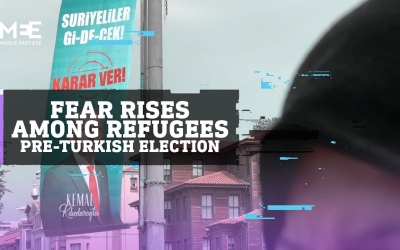
In Affan's view, the recent elections created an atmosphere of fear and anxiety with the results potentially having existential repercussions for Arab refugees and communities living in Turkey.
Furthermore, the tension around the elections prevented any rational discussions on better refugee and residency policies.
As Amri points out, if anything, they actually played a significant role in scapegoating foreigners for Turkey's economic downturn.
Notably, the narratives political leaders expressed during the elections were strained between rising nationalism amid economic problems, and the issue of refugee immigration - mainly by Syrians and Afghans - alongside Arab residents.
As Ghanem states: "The media was incessantly targeting Arabs even though no other group of people supported Turkey more politically and economically during its difficult times. This is a fact and hate speech ignores it."
In addition to becoming more xenophobic, it seems Turkish voters have also started to lose belief in their country's long-standing open-door immigration policy.
As Algan highlights, Syrians face the greatest insecurity in terms of their residency, and greater precautions need to be taken to manage these social tensions. "With the refugees under extreme psychological stress, there needs to be a policy towards de-escalating the polarisation and preventing the growth of any further social hatred."
Normalising hate speech
Recently, some Arab residents in Turkey say they have started worrying that even the language they speak could provoke xenophobic attacks.
Amri shared that she avoids answering her phone in case she inadvertently speaks Arabic: "I can easily predict how callers will react when they hear Arabic. [The hostility] was never like this before."
Speaking on the condition of anonymity, another Arab resident told this writer that his family had assigned a relative who was fluent in Turkish to speak up in public on their behalf.
He also said he hesitates to be involved in any confrontations or even traffic disputes, and has instructed his children to hide their Arab identity, despite the fact they can speak some Turkish.
Many Arab parents have also expressed deep concern about the psychological impact this rise in xenophobia could have on their school-aged children. "While I'm not personally worried about being physically or verbally attacked, I am concerned about my kids because they don't know how to cope with hate speech or xenophobia," Affan said.
However, the new outbreak of xenophobic violence not only affects foreigners and refugees - it also harms Turkish citizens.
The normalisation of hate speech and racism in schools without a curriculum that supports diversity or multicultural thinking will only increase social tensions over the coming years.
In order to protect society from irregular immigration and racism, systemic and structural changes are urgently needed. Even Arabs with legal status in Turkey worry about their precarious residency, as the situation remains fragile and heavily political.
While foreigners learn the language, and the culture, and settle in Turkey, they do not feel safe or legally protected. Until such insecurities are eliminated, Turkey will face tremendous difficulties in transforming these people into a resource that will enrich its social and human capital.
"We want to make long-term plans about our lives and careers, but we do not know how things will be next year," Amri says. "We need to be ready to leave at any moment, rather than planting roots here."
In a similar vein, Affan states that: "Arab residents in Turkey prepare for the worst-case scenario, that they may have to leave one day."
And as this insecurity grows, the question remains: what will Turkish society do to tackle the normalisation of hate speech and xenophobia that threatens to strike at the core of its social peace?
The views expressed in this article belong to the author and do not necessarily reflect the editorial policy of Middle East Eye.
Middle East Eye delivers independent and unrivalled coverage and analysis of the Middle East, North Africa and beyond. To learn more about republishing this content and the associated fees, please fill out this form. More about MEE can be found here.


